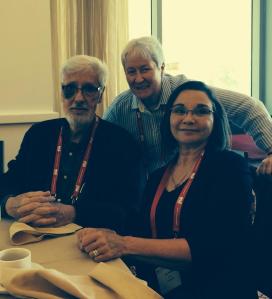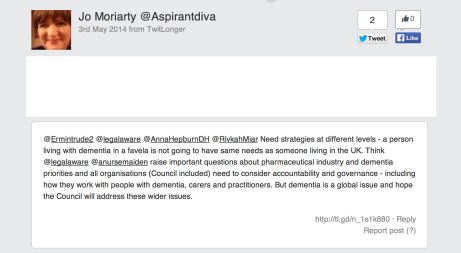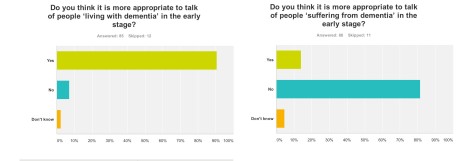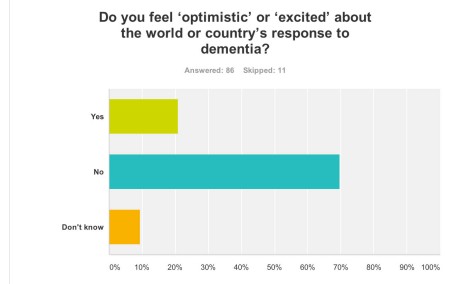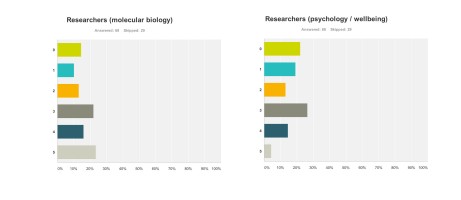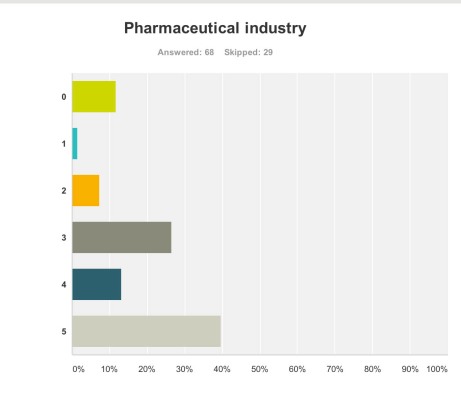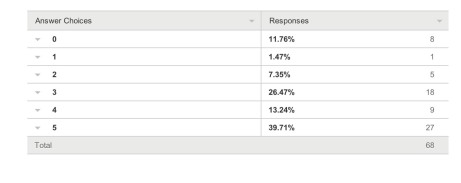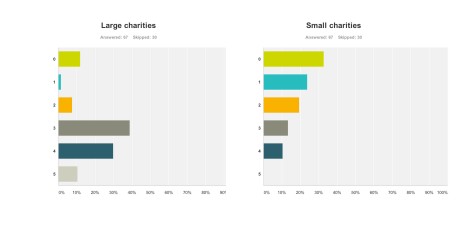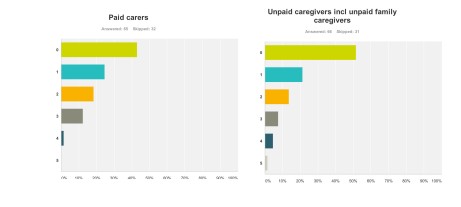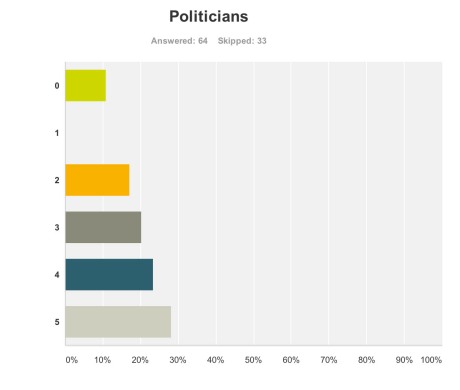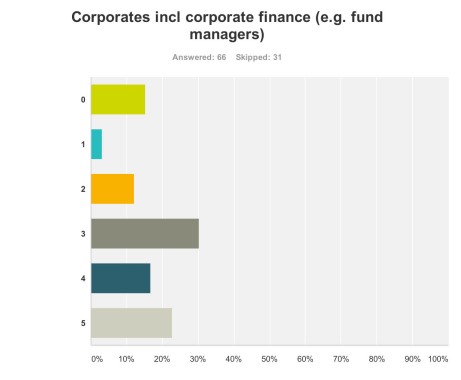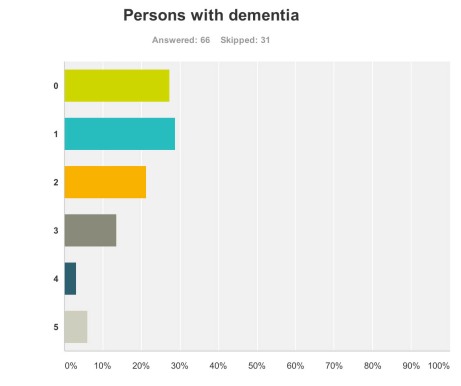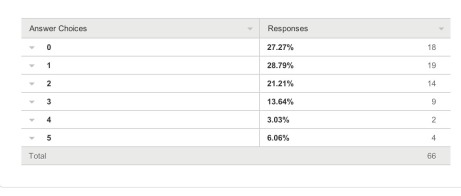Home » Posts tagged 'patients'
Tag Archives: patients
Why might there be a divide between patients and doctors?
The case against Bawa Garba (“Bawa Garba”) has thrown up some fairly strong opinions from people who support Bawa Garba and from those who don’t.
The feelings on the social media seem to have ignited some long-held views about whether the medical profession is working with patients, or simply against.
All opinions lie on a range, and some of the opinions lie at an extreme, such as the notion that doctors regularly lie and cover up.
Much of the discussion on Twitter seems to refer to some power imbalance, but it is the case that all regulated medical professions on Twitter run the danger of being reported to the regulator if their behaviour is called into question. The vast majority of registered doctors, one assumes, does not want to be abusive to any patients, who are not even their own.
The idea that registered doctors regularly cover up their mistakes is a conclusion from the admissions on Twitter that doctors regularly make mistakes and also that doctors are not regularly reporting themselves or others to any regulator about their mistakes.
I feel the question of what actually is a ‘mistake’ or error needs some airing too, however. We accept that there is a range of errors, some which do not cause any substantial harm to decisions which are outright dangerous. The word ‘mistake’ itself is binary, but it does often take a judgment from peers as to whether a pattern of decision-making was clearly abnormal.
No two doctors will always make the same clinical decisions, and even specialists working in exactly the same field might have differing views about the direction in which to take their patients.
But the binary nature of ‘doctor’ and ‘patient’ is at once called out when one realises that many doctors are themselves patients or doctors, so have direct experience of what it’s like on the other side of the fence. Admittedly, most doctors have to switch off emotionally about their patients to protect themselves from going into an emotional meltdown.
This defensive mechanism of not becoming too close to your patients lies in conflict with the democratisation of opinions on Twitter. It would be wrong to feel that all opinions, however, have exactly the same merit. For example, even the most ferocious denial of the Holocaust will fall down.
The information asymmetry between doctors and patients has long existed, and it is probably right that tensions between doctors and patients have resurfaced following Bawa Garba. Some patients will feel strongly that the diagnoses or management plans from their doctors are palpably wrong, given what they might have learnt elsewhere from other sources, and feel powerless to speak out.
The powerlessness to speak out is rife within medicine and nursing anyway, explaining to some extent why ‘whistleblowers’ like Chris Day have such a terrible time. It’s also fair to say that the communication between doctors and patients can be horrific too. I found medications regularly crossed off and added to my mum’s prescription chart without any discussion with anyone.
Whilst it is lovely and fluffy to ‘believe in’ shared decision making and co-production, it is worth considering why it is so widely felt that there is a tense power dynamic between doctors and patients, epitomised by the aloofness of doctors on ward rounds who only see a snapshot of the lives of patients and carers.
I believe that doctors can learn a lot from patients and carers, particularly for frailty, dementia and delirium where the corroborative history is key. This is not just about a sop to visiting hours. This is actually about making the diagnosis and care plans less susceptible to failure.
So whether or not you feel the GMC was too ‘lenient’ with Bawa Garba is neither here nor there compared to the unresolved issues, of a perception of arrogance of some doctors by some patients, or a perception of excess victimhood by some patients in the eyes of some doctors.
The idea of doctors and patients being on opposite sides of the fence is entrenched by the idea of clinicians going into battle ‘on the front line’. Whilst doctors continue to make decisions on their patients albeit in a well meaning and paternalistic way, they will always be accused of playing ‘God’.
What’s the difference between a doctor and God? God doesn’t think he’s God.
A lack of patients’ or carers’ representative on the World Dementia Council is either an oversight or is entirely deliberate
In fairness, there’s nothing ambiguous about the stated intentions of the ‘World Dementia Council‘.
“The creation of a World Dementia Council was one of the main commitments made at the G8 dementia summit in December 2013. The council aims to stimulate innovation, development and commercialisation of life enhancing drugs, treatments and care for people with dementia, or at risk of dementia, within a generation.”
In the UK jurisdiction, there is much deep concern about the extent to which policy should be driven towards a ‘cure’ or ‘care’ for dementia.
Only this week, another story about poor standards in an English care home hit the headlines.
An undercover reporter had filmed a video appearing to show a partially paralysed woman being slapped at The Old Deanery at Bocking, near Braintree. The home’s owners have now sacked a total of seven staff and suspended one other. Essex Police said an investigation of the alleged abuse had been launched after detectives viewed the programme.
The reports of closure of day clubs and small social enterprises losing tenders stream in every week.
Meanwhile, in “Dementia Friends”, which is led by the Alzheimer’s Society, people will be given free awareness sessions to help them understand dementia better and become Dementia Friends.
By 2015, 1 million people will become Dementia Friends. The £2.4 million programme is funded by the Social Fund and the Department of Health. The scheme has been launched in England, and the Alzheimer’s Society is hoping to extend it to the rest of the UK soon.
It could be a genuine belief that industry leaders in economics, Pharma and innovations feel they do not need to listen to the views of persons with dementia or carers.
But I totally reject this hypothesis.
It is a huge kick in the teeth not to have representatives on a body actually called the “World Dementia Council”.
It is impossible for Pharma, whose primary duty is admittedly to their shareholders, to enter the ‘dementia market’ without an understanding of the needs of the market involved.
Furthermore, all innovations need to be adopted.
The work of Prof Roger Orpwood, Emeritus Professor of Medical Engineering at Bristol, is well known to many experts in dementia innovations.
Orpwood recently retired as Director of the Bath Institute of Medical Engineering (BIME) after a career in engineering design and research, initially in Industry, and then in academia and the health service.
His groundbreaking work is cited in my book “Living well with dementia”, not least because his assistive technologies for dementia through his research grants have been amazing.
I also admire the painstaking way in which he tested all his assistive technology adaptations with actual persons with dementia. This is explained in great detail in all Orpwood’s peer-reviewed papers which I have cited in my references.
I have previous reported a straw electronic poll on who were the ‘winners and losers’ of the G8 dementia summit.
96 people took part. The results clearly showed that the vast majority of people thought that large charities, corporate finance and the pharmaceutical industry were clear winners. People with dementia and carers were the clear losers, in perception.
Consistent with this, the #G8dementia summit contained little in the way of patients’ or carers’ representations relative to the needs of corporate finance, Pharma-directed research and Pharma, in the discussion sessions.
The few that appeared were outstanding through, for example Beth Britton asked a focused question on the need for more research into psychological intervention. This feeds in fact into the point there are no patients or carers representatives on the World Dementia Council, making it far less likely for high quality research into living well with dementia – which we desperately need – to be mandated.
On a happier note, Peter Dunlop gave an outstanding speech wihich received a standing ovation.
And Beth’s video was extremely special indeed for many of us.
But an explanation for the lack of patients’ and carers’ representatives on the World Dementia Council can perhaps be found in the original raison d’être of the G8 dementia summit.
Likewise, there were no patients or carers representatives at the G8 dementia summit itself, held last year in December 2012.
The general impression from my survey was that the G8 dementia summit was a ‘great opportunity’, but also a ‘waste’.
In the court of public opinion, and bear in mind that politicians and the pharmaceutical industry get their moral license to practise from their democratic acceptance, this lack of representation on the World Dementia Council has gone down like a ‘lead balloon’.
It’s simply untrue there’s a lack of good candidates of people living with dementia who could have done a brilliant job of representing views of people: Kate Swaffer and Richard Taylor immediately spring to mind.
All these shenanigans from the UK government-led policy are in total contrast to the enormous amount of warmth, goodwill and enthusiasm from the Dementia Alliance International, a stakeholder group led by people with dementia, at the Alzheimer’s Disease International conference currently under way in San Juan as we speak.
Whatever the rationale for the decision, it is incredibly bad PR for the “World Dementia Council”, raising serious questions about accountability, transparency and governance like the Prime Minister’s Dementia Challenge itself.
@dementia_2014 @JeanGeorgesAE @AlzheimerEurope unbelievable really
— Kate Swaffer (@KateSwaffer) May 2, 2014
@dementia_2014 @JeanGeorgesAE @AlzheimerEurope @KateSwaffer They don’t include also caring organisations. Only research and pharma.
@legalaware @RoyLilley plenty of profiteers represented? Then he will defend it relentlessly! #decisionaboutme?itwillbewithoutme!
— DiscoverThee (@DiscoverThee) May 3, 2014
— Pedro Cano (@pcanod) May 2, 2014
@Aspirantdiva @legalaware @AnnaHepburnDH @RivkahMiar Yet to be convinced. But would be nice to hope.
— Ermintrude (@Ermintrude2) May 3, 2014
@Ermintrude2 @legalaware @AnnaHepburnDH @RivkahMiar Time will tell but hope some things go above party politics, profits & national interest
— Jo Moriarty (@Aspirantdiva) May 3, 2014
@Aspirantdiva @legalaware @AnnaHepburnDH @RivkahMiar don’t like govt claiming credit when they destroy so much. And wait for applause.
— Ermintrude (@Ermintrude2) May 3, 2014
It is essential to make clear all potential conflicts of interests known of these clearly well connected people on the Council.
And if you think I am a lone voice.
I am not.
Here’s JeanGeorges CEO of Alzheimer’s Europe (@JeanGeorgesAE):
A World #Dementia Council http://t.co/iuS9KHYbu0 without people with dementia, carers or #Alzheimer associations. Not the best start!
— Jean Georges (@JeanGeorgesAE) May 2, 2014
Things can only get better. Hopefully.
Appendix
Members appointed include
Sir William Castell, Chairman of the Wellcome Trust
Dame Sally Davies, Chief Medical Officer at theDepartment of Health
Tim Evans, Director for Health, Nutrition and Population at the World Bank
Franz Humer, Chairman of Diageo plc
Dr Yves Joanette, Scientific Director, Canadian Institute of Health Research, Institute of Aging
Professor Martin Knapp, London School of Economics
Dr Kiyoshi Kurokawa, Professor of the National Graduate Institute for Policy Studies and Science Advisor to the Cabinet of Japan
Yves Leterme, Deputy Secretary General of theOECD (The Organisation for Economic and Co-operation and Development)
Raj Long, Senior Regulatory Officer – Integrated Development, Global Health at the Bill & Melinda Gates Foundation
Professor Pierluigi Nicotera, Scientific Director and Chairman of the Executive Board at the German Centre for Neurodegenerative Diseases (DZNE)
Professor Ronald Petersen, Mayo Alzheimer’s Disease Research Center
Paul Stoffels, Worldwide Chairman, Pharmaceuticals,Johnson & Johnson
George Vradenburg, President and Chairman of theVradenburg Foundation and US Against Alzheimer’s
Who were the biggest winners and losers of the G8 dementia summit? My survey of 96 persons without dementia
Background
The G8 summit on dementia was much promoted ‘to put dementia on top of the world agenda’.
It is described in detail on the “Prime Minister’s Dementia Challenge” website.
I went only last Monday to Glasgow to the SDCRN conference retrospective on the G8 dementia. It was a sort-of debrief for people in the research community about what we could perhaps come to expect. And what we’d come to expect, just in case any of us had thought we’d dreamt is was the idea of identifying dementia before it had happened or just beginning to happen and stopping it in its tracks then and there with drugs.
This is of course a laudable aim, but an agenda utterly driven by the pharmaceutical industry. My philosophy (not mine uniquely) “Living well in dementia” is called “non-pharmacological interventions” to denote a sense of inferiority under such a construct.
Aim
There has never been a media report on people’s views about the G8 dementia summit.
There has never been an analysis of the messaging of this summit in the scientific press, to my knowledge.
This study was conducted as a preliminary exploratory study into the language used in a random sample of 75 articles in the English language.
Methods
I completed a survey of reactions to the G8 dementia summit held last year in December 2013. I recruited people off my Twitter accounts @legalaware and @dementia_2014, and there were 96 respondents. Responses to individual items varied from 63 to 96.
I used ‘SurveyMonkey’ to carry out this survey. With ‘SurveyMonkey’, you cannot complete the survey more than once.
(I have also already collected 19 detailed questionnaire responses from Clydebank which I intend to write up for the Alzheimer Europe conference later this year, also in Glasgow. And also six people living with dementia also responded; and I’ll analyse these replies separately. I reminded myself by looking at the programme of the summit again what the key topics for discussion were – drugs, drug development and data sharing, with a sop to innovations and provision of high quality of information. It is perhaps staggering that there has been no detailed analysis of who benefited from the G8 dementia, but given the nature of this event, the media reportage and the events of my survey, this retrospectively is not at all surprising to me.)
Exclusions
Persons with dementia were directed to a different link (of the same survey.)
Results
The results encompass a number of issues about media coverage, the relative balance of cure vs care, and who benefited.
Media coverage
Overall, most people had not caught any of the news coverage on the TV (56%) or radio (55%). But most had caught the coverage on the internet, for example Facebook or Twitter (66%). 87% of people said they’d missed the live webinar. It was possible to answer my survey without having caught of any of the G8 seminar, however.
So what did people get out of it and what did they expect? Most people did not think the summit was a “game changer” (53% compared to 16%; with the rest saying ‘don’t know’), although the vast majority thought the subject matter was significant (82%) (n = 90).
Therefore, unsurprisingly, a majority considered the response against dementia to be an opportunity for policy experts to produce a meaningful solution (58%). However, it’s interesting that 24% said they didn’t know (with a n = 90 overall.)
In summary, they had high hopes but few thought it was a good use of a valuable opportunity to talk about dementia.
Many of us in the academic community had been struck in Glasgow at the sheer “terror” in the language used in referring to dementia. A large part of the media seemed to go for a remorseless ‘shock doctrine’ approach. Prof Richard Ashcroft, a medical law and bioethics expert from Queen Mary and Westfield College, University of London, wrote a very elegant piece about this, and his personal reaction, in the Guardian newspaper.
In terms of language, the respondents were consistent in not viewing the response against dementia as a “fight” (61%), a “war” (84%), a “battle” (72%) or an “epidemic” (70%) (n ranging from 83 to 86). 56% of people considered it unreasonable to speak of “turning the tide against dementia”. In terms of personal reactions, 82% considered themselves not to be “shocked” by dementia.
91% of people thought it was appropriate to talk of ‘living with dementia’ in the early stage (n = 85), but 82% of people did not think it was more appropriate to talk of people ‘suffering from dementia’ at this early stage (n = 86). In retrospect, I should’ve asked whether the appropriate phase was ‘living well with dementia’, so I suppose nearly 91% endorsing ‘living with dementia’ at all is not surprising. I have previously written about the use of the word “suffering”, as it is so commonly used in newspaper titles of articles of dementia here, though I readily concede it is a very real and complex issue.
The opportunity presented by the G8 dementia summit: cure vs care
Despite all the media hype and extensive media coverage of the G8 dementia summit, 70% of people “did not feel excited about the world or country’s response to dementia” (n = 86).
But it is possibly hard to see what more could have been done.
The presentation by Pharma and politicians for their dementia agenda was extremely slick. This may be though due to a sense of politicisation of the dementia agenda, a point I will refer to below.
Early on in the meeting, World Health Organization Director-General Magaret Chan reminded the delegates – including politicians, campaigners, scientists and drug industry executives – how much ground there was to cover.
“In terms of a cure, or even a treatment that can modify the disease, we are empty-handed,” Chan said.
“In generations past, the world came together to take on the great killers. We stood against malaria, cancer, HIV and AIDS, and we should be just as resolute today,” Cameron said. “I want December 11, 2013, to go down as the day the global fight-back really started.”
It is therefore been of conceptual interest as to whether dementia can be considered in the same category as other conditions, some of which are obviously communicable. In my survey, people reported that that, before the summit, they would not have considered dementia comparable to HIV/AIDS (88%), cancer (70%), or polio (92%) (n = 86).
This is interesting, as a common meme perpetuated also by certain parliamentarians (who invariably spoke about Dementia Friends too) was that the same sort of crisis level in finding a cure for dementia should accompany what had happened for AIDS decades ago.
Biologically, the comparisons are weak, but it was argued that AIDS, like dementia now, suffered from the same level of stigma. Dementia, however, is an umbrella term encompassing about a hundred different conditions, so the term itself “a cure for dementia” is utterly moronic and meaningless.
Also in my survey, 67% of people reported that they did not feel more excited about the future of social care and support for people living with dementia (n = 85), and virtually the same proportion (66%) reported that they did not feel excited about the possibility of a ‘cure’ for dementia (defined as a medication which could stop or slow progression) (n = 85).
This reflects the reality of those people living in the present, perhaps caring for a close one with a moderate or severe dementia. It had been revealed that budget cuts have seen record numbers of dementia patients arriving in A&E during 2013. Regarding this, it was estimated that around 220,000 patients were treated in hospital as a result of cuts in social care budgets, which left them without the means to get care elsewhere.
It is known that the government has cut £1.8 billion from social care budgets, which is in addition to the pressure being applied to GP surgeries. In 2008 the number of dementia patients arriving in A&E was just over 133,000. The concern is that the Alzheimer’s Society, while working so close to deliver “Dementia Friends”, is not as effective in campaigning on this slaughter in social care as they might have done once upon a time. Currently, we now have the ridiculous spectacle of councils talking about dementia friendly communities while slashing dementia services in their community (as I discussed on the Our NHS platform recently).
Why Big Pharma should have felt the need to breathe life into the corpse of their industry for dementia is interesting, though, in itself. Pharma obviously is ready to fund molecular biology research, and less keen to fund high quality living well with dementia, and there is also concern that this agenda has pervasively extended to dementia charities where “corporate capture” is taking place. A massive theme of the G8 dementia summit was in fact ‘personalised medicine’. For example, there is growing evidence that while two patients may be classified as having the same disease, the genetic or molecular causes of their symptoms may be very different. This means that a treatment that works in one patient will prove ineffective in another. Nevertheless, it is argued the literature, public databases, and private companies have vast amounts of data that could be used to pave the way for a better classification of patients. According to my survey, despite ‘personalised medicine’ being a big theme of the summit, strikingly 66% felt that this was not adequately explained. There’s no doubt also that the Big Pharma have been rattled by their drugs coming ‘off patent’ as time progresses, such as donepezil recently. This has paved the way for generic competitors, though it is worth noting that certain people have only just given up on the myth that cholinesterase inhibitors, a class of anti-dementia drugs, reliably slowed the progression of Alzheimer’s disease in the majority of patients.
Who benefited?
In terms of who ‘benefited’ from the G8 dementia summit, I asked respondents to rate answers from 0 (not at all) to 5 (completely).
Research First of all, it doesn’t seem researchers themselves are “all in it together”. For example, these are the graphs for researchers (molecular biology) (n = 68) and researchers (wellbeing) (n = 68), with rather different profiles (with the public perceiving that researchers in molecular biology benefited more). This can only be accounted for by the fact there were many biochemical and neuropharmacological researchers in the media coverage, but no researchers in wellbeing.
Pharmaceutical industry But the survey clearly demonstrated that the pharmaceutical industry were perceived to be the big winners of the G8 dementia (n = 68).
Ministers are hoping a government-hosted summit on dementia research will help boost industry’s waning interest in the condition, and to some extent campaigners have only themselves to blame for pinning their hopes on this one summit.
The G8 Summit came amidst fears the push to find better treatments is petering out, and it is still uncertain how effective some drugs currently in Phase III trials might be, given their problems with side effects and finding themselves into the brain once delivered.
And the breakdown is as follows:
Charities The survey also revealed a troubling faultline in the ‘choice’ of those who wish to support dementia charities, and potential politicalisation of the dementia agenda. It has been particularly noteworthy that this recent initiative in English policy was branded “the Prime Minister Dementia Challenge”, and ubiquitously the Prime Minister was (correctly) given credit for devoting the G8 to this one topic.
A previous press release had read,
“Launched today by Prime Minister David Cameron, the scheme, which is led by the Alzheimer’s Society, people will be given free awareness sessions to help them understand dementia better and become Dementia Friends. The scheme aims to make everyday life better for people with dementia by changing the way people think, talk and act. The Alzheimer’s Society wants the Dementia Friends to have the know-how to make people with dementia feel understood and included in their community.. By 2015, 1 million people will become Dementia Friends. The £2.4 million programme is funded by the Social Fund and the Department of Health. The scheme has been launched in England today and the Alzheimer’s Society is hoping to extend it to the rest of the UK soon. Each Dementia Friend will be awarded a forget-me-not badge, to show that they know about dementia. The same forget-me-not symbol will also be used to recognise organisations and communities that are dementia friendly. The Alzheimer’s Society will release more details in the spring about what communities and organisations will need to do to be able to display it.”
Therefore, the perception had arisen amongst the vast majority of my survey respondents that large charities were big winners from the G8 dementia summit. This is perhaps unfair as there was not much representation from other big charities apart from the Alzheimer’s Society, for example Dementia UK or the Joseph Rowntree Foundation.
I feel that this distorted public perception in the charity sector for dementia is extremely dangerous.
And this finding is reflected in the corresponding graph for ‘small charities’. Small charities were not represented at all in any media coverage, save for perhaps ambassadors of smaller charities there in a personal capacity at the Summit.
The numbers sampled for their views on large and small charities were both 67.
Paid carers and unpaid caregivers
The major elephant in the room, or maybe more aptly put an elephant who wasn’t invited to be in the room at all, was the carers’ community.
Only recently, for example, it’s been reported from Carers UK that half of the UK’s 6.5 million carers juggle work and care – and a rising number of carers are facing the challenge of combining work with supporting a loved one with dementia. The effects of caring for a person with moderate or severe dementia are known to be substantial, encompassing a number of different domains such as personal, financial and legal. It is also known that without the army of millions of unpaid family caregivers the system of care for dementia literally would collapse.
These are the graphs for paid (upper panel) and unpaid (lower panel) carers and caregivers (n = 65 and n = 66 respectively), with the most common response being “not at all benefiting”.
Politicians
But when asked if the politicians benefited, the result was very different.
Admittedly, few politicians were in attendance from the non-Government parties in England, and none from the main opposition party was given an opportunity to give a talk.
Both Jeremy Hunt and David Cameron gave talks. There is clearly not a lack of cross-party consensus on the importance of dementia, evidenced by the fact that the last English dementia strategy ‘Living well with dementia’ was initiated under the last government (Labour) in 2009.
The overall impression from 64 respondents to this question that politicians benefited, and some thought quite a lot.
Corporate finance A lot of discussion was about ‘investment’ for ‘innovation’ in drug research. Andrea Ponti is a highly influential man. He has been Global Co-head of Healthcare Investment Banking and Vice Chairman of Investment Banking In Europe of JPMorgan Chase & Co. since 2008. Mr. Ponti joined JPMorgan from Goldman Sachs, where he was a Partner and Co-head of European healthcare, consumer and retail investment banking, having founded the European healthcare team in 1997.
At the G8 dementia summit, Ponti advised that biotechnology and drug research can be a ‘risky’ investment for funders, rebalance of risk/reward needed. Ponti specifically made the point the rewards for investing in drug development had to be counterbalanced by the potential risks in data sharing (which are not insubstantial legally across jurisdictions because of privacy legislation).
Anyway, in summary, it was perhaps no surprise that my survey respondents felt that corporate finance were big winners of the summit (n = 65).
Persons with dementia And also for persons with dementia themselves?
One would have hoped that they would have been big winners according to my survey respondents, but the graph shows a totally different profile (with a minority of respondents rating that they benefited much.)
This is very sad.
66 answered this question.
The overall picture was this.
And the breakdown of results was this.
What will people do next?
Finally, it seemed as if the G8 Dementia Summit produced a ‘damp squib’ response with people in the majority neither more or less likely to donate to dementia charities (69%), donate to dementia care organisations (74%), get involved in befriending initiatives (72%), talk to a neighbour living with dementia or talk to a caregiver of a person living with dementia (58%), or get involved in dementia research (69%) (n varying from 73 to 78).
Limitations
Respondents were all in the UK, but the G8 dementia summit was clearly targeted in a multi-jurisdictional way.
It could be that there is huge bias in my sample, towards people more interested in care rather than Pharma. My follower list does include a significant number of people living with dementia or who have been involved in caring for people with dementia.
Conclusion
It would be interesting to know of any in-house reports from other organisations as to how they perceived they felt benefited from the G8 dementia, for example from patient representative groups, Big Pharma, carers and the medical profession. Pardon the pun, but the results taken cumulatively demonstrate a very unhealthy picture of the public’s perception in the dementia agenda in England, who calls the shots, and who benefits.
Given that this G8 dementia was to a large extent supposed to establish a multinational agenda until 2025, in parallel to the multinational nature of the response of the pharmaceutical industry, for those of us who wish to promote living well with dementia, it is clear some people are actually the problem not the solution.
This is incredibly sad for us to admit, but it’s important that we’re no longer in denial over it.




